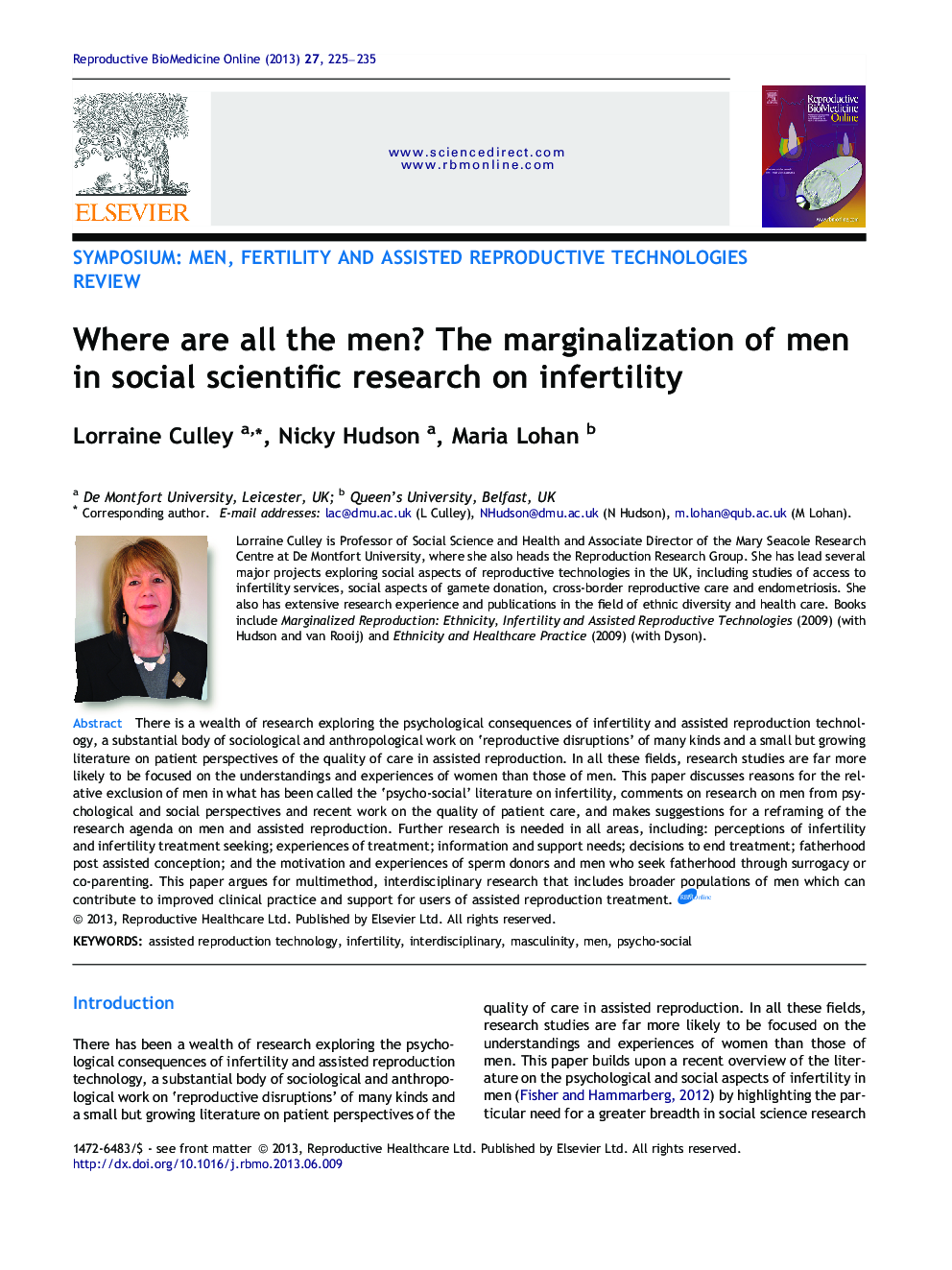| کد مقاله | کد نشریه | سال انتشار | مقاله انگلیسی | نسخه تمام متن |
|---|---|---|---|---|
| 3970564 | 1256732 | 2013 | 11 صفحه PDF | دانلود رایگان |

There is a wealth of research exploring the psychological consequences of infertility and assisted reproduction technology, a substantial body of sociological and anthropological work on ‘reproductive disruptions’ of many kinds and a small but growing literature on patient perspectives of the quality of care in assisted reproduction. In all these fields, research studies are far more likely to be focused on the understandings and experiences of women than those of men. This paper discusses reasons for the relative exclusion of men in what has been called the ‘psycho-social’ literature on infertility, comments on research on men from psychological and social perspectives and recent work on the quality of patient care, and makes suggestions for a reframing of the research agenda on men and assisted reproduction. Further research is needed in all areas, including: perceptions of infertility and infertility treatment seeking; experiences of treatment; information and support needs; decisions to end treatment; fatherhood post assisted conception; and the motivation and experiences of sperm donors and men who seek fatherhood through surrogacy or co-parenting. This paper argues for multimethod, interdisciplinary research that includes broader populations of men which can contribute to improved clinical practice and support for users of assisted reproduction treatment.While much has been written about the psychological and social consequences of infertility and infertility treatment, most of this has focused on the experiences of women, with relatively little research with men as users of assisted reproduction technology. This paper discusses some of the reasons why this is the case. It comments on psychological and social research which has been carried out with men and discusses some of the limitations of the methods by which this research has been conducted. An argument is made for research to pay more attention to the ways in which men as well as women experience infertility and assisted reproduction, and the paper suggests using methods from both quantitative and qualitative traditions to more fully explore a range of issues relevant to men and to improving patient care. Further research with men is needed in all areas including: perception of fertility and infertility; treatment seeking; experiences of treatment; information and support needs; decisions to end treatment; fatherhood post assisted conception; and the motivation and experiences of sperm donors and men who seek fatherhood through surrogacy or co-parenting.
Journal: Reproductive BioMedicine Online - Volume 27, Issue 3, September 2013, Pages 225–235